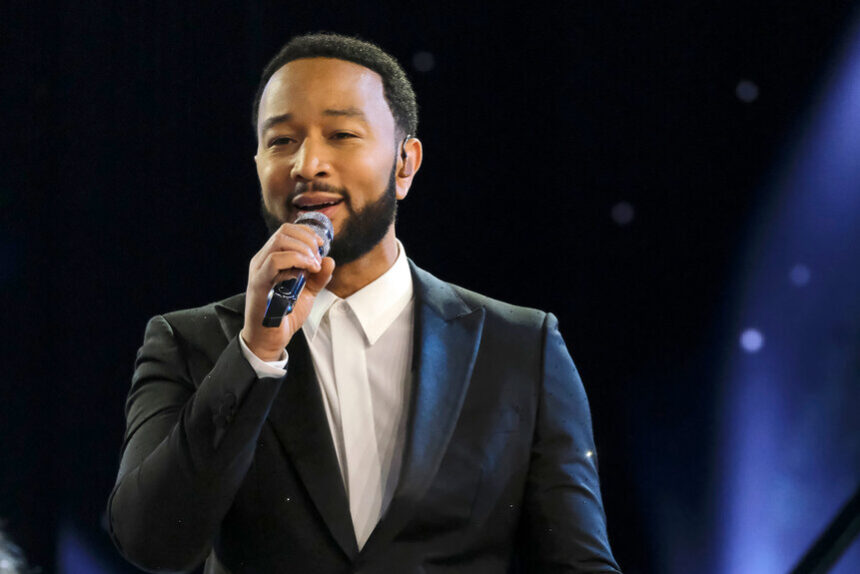American singer-songwriter John Legend has defended his decision to perform in Rwanda despite growing criticism over the country’s involvement in the ongoing war in the Democratic Republic of Congo (DRC).
Speaking to the BBC after his concert in Kigali last week, Legend insisted that artists should not “punish” ordinary citizens for the actions of their leaders.
“I don’t believe that we should punish the people of Rwanda and punish the people of other countries when we disagree with their leaders,” he said. His comments came amid accusations that Rwanda is backing M23 rebels, who have taken control of key cities in eastern DRC, forcing hundreds of thousands to flee their homes. Reports indicate that Rwanda has sent 4,000 troops to support the rebels, escalating tensions in the region.
Critics argue that by performing in Rwanda, Legend missed an opportunity to take a stand against the violence. Fellow Grammy-winning artist Tems pulled out of a concert in Rwanda, citing her unwillingness to be “insensitive to real-world issues.” Some activists accused Legend of legitimizing the Rwandan government, with Belgium-based activist Denise Zanesa comparing his performance to “collaborating with oppression itself.”
Despite the backlash, Legend stood by his choice, emphasizing his role in helping to “grow touring capabilities” in Africa. He headlined the Move Afrika event, organized by the Global Citizen NGO, which aims to boost the live music industry on the continent. “I’m aware of what’s happening [in DR Congo]… but I really believe that the mission of Move Afrika is still important,” he said.
While fans at the sold-out Kigali show cheered him on, Legend faced intense criticism on social media, leading him to delete an Instagram post promoting the event. Some online critics accused Rwanda of using Black American culture to whitewash its global image, a tactic commonly referred to as “soft power” or “sportswashing.”
Rwanda has previously been accused of using international sports sponsorships to deflect attention from human rights concerns. The country’s tourism agency, Visit Rwanda, has lucrative sponsorship deals with top European football clubs, including Arsenal, Bayern Munich, and Paris Saint-Germain. These partnerships have sparked debates about whether Rwanda is using entertainment and sports to shift focus away from its alleged political and military actions.
Legend, known for his outspoken political views, has previously criticized former U.S. President Donald Trump and distanced himself from former mentor Kanye West over political disagreements. However, when asked about Rwanda’s alleged “sportswashing” tactics, his team declined to comment.
Despite the controversy, Legend remains firm in his belief that music should transcend politics. “I’m just here… to make sure that we continue to grow the touring capabilities and industry around the continent,” he stated. However, with tensions in the DRC continuing to rise, his performance in Kigali remains a deeply divisive topic.

